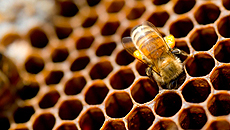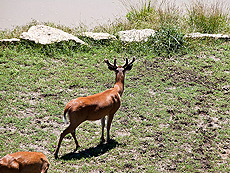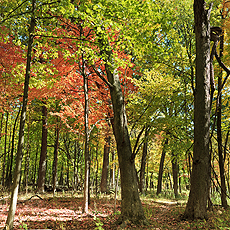|
Have a safe day!
Monday, Oct. 8
THERE WILL BE NO PARTICLE ASTROPHYSICS SEMINAR THIS WEEK
3:30 p.m.
DIRECTOR'S COFFEE BREAK - 2nd Flr XO
THERE WILL BE NO ALL EXPERIMENTERS' MEETING THIS WEEK
Tuesday, Oct. 9
3:30 p.m.
DIRECTOR'S COFFEE BREAK - 2nd Flr XO
4 p.m.
Accelerator Physics and Technology Seminar - One West
Speaker: Vladimir Shiltsev, Fermilab
Title: Space Charge Compensation: From Idea to Test
Click here for NALCAL,
a weekly calendar with links to additional information.
Upcoming conferences |
| Monday, Oct. 8
- Breakfast: potato pancakes
- Beef stew with spatzle
- Knockwurst with sauerkraut
- Pecan-crusted chicken breast
- Smart cuisine: pasta primavera
- German beef sandwich
- Bratwurst and onion pizza by the slice
- Sausage and spatzle
Wilson Hall Cafe Menu
|
|
Wednesday, Oct. 10
Lunch
- Baked cornish hens with mustard sauce
- Broccoli and rice
- Pumpkin pie with spiced cream
Friday, Oct. 12
Dinner
- Coquille St. Jacques
- Pork tenderloin with porcini sauce
- Cauliflower gratin
- Green bean amandine
- Apple pie with vanilla bean ice cream
Chez Leon Menu
Call x3524 to make your reservation.
|
|
State-of-the-laboratory meetings - today
Fermilab Director Pier Oddone and Deputy Director Young-Kee Kim will host three state-of-the-laboratory meetings today in One West for the following groups of employees:
- Administrative staff: 8:45 a.m. to 10:15 a.m.
- IT professionals: 10:30 a.m. to noon
- Technical staff: 1 p.m. to 2:30 p.m.
You are encouraged to attend your designated meeting.
Additional state-of-the-laboratory meetings will take place on Thursday, Oct. 25, and Friday, Oct. 26.
|
Accelerator app: Beehives
 |
About 30 percent of bees in the United States die of disease, infection or other causes each year, a number beekeepers say will have a serious impact on agriculture. Could particle accelerators be the solution? Photo: Reidar Hahn
|
Inside their hives, bees face a variety of enemies. Parasites transfer diseases. Bacteria infect honey. Fungi overwhelm larvae. These problems can become so rife that the hives are rendered inhospitable.
To save their bee colonies, some beekeepers turn to particle accelerators.
The infection of bees and their larvae can be devastating to a colony. Sometimes it kills off all the bees in a hive. Other times, the bees live but are so exhausted that they don't produce as much honey or as strong of larvae, causing the beekeeper to replace the colony nonetheless.
The infection of other parts of a hive can have longer-term consequences as well. Bees use wax combs to store larvae, pollen and honey—often using the same wax combs for several years, allowing intruders like fungi and bacteria to build up over time. One of the worst wax-inhabiting infections, a common disease known as American foulbrood, can form and release spores that live for up to 40 years. No amount of cleaning will eradicate the spores, so beekeepers often burn or bury their hives to prevent the disease from spreading.
Particle accelerators offer an alternative that allows beehives to be put back into use. For example, at Iotron Industries, which operates facilities in the United States and Canada, beehives are irradiated in the same way as food products, medical devices and agricultural-based products. Items—including bee-free hives—are placed on a long conveyor belt that passes under an 18-foot-long, 50-kilowatt, 10-million-electronvolt linear accelerator. Electron pulses each 200 microseconds long kill any organisms in the hives by disrupting their DNA with no residual chemicals or hazardous materials generated by the process. The slower the conveyor belt moves, the higher the dose of electrons.
Read more
—Signe Brewster
|
Fermilab Student and Postdoc Association replaces former Graduate Student Association
Since 1994, Fermilab's Graduate Student Association has represented the laboratory's graduate students, while other young scientists have lacked this basic representation.
Last week the GSA became more inclusive. It is now the Fermilab Student and Postdoc Association, representing not just graduate students, but also undergraduates, postdocs, interns and other young scientists and engineers.
"FNALGrad" will continue to be the main listserv for the FSPA. To sign up, visit the FSPA listserv page.
To run as an officer or nominate someone for our upcoming elections, contact us at gsa_officers@fnal.gov. Graduate students and postdocs are welcome!
|
Ask the Ethicist column - political activities
In the Ask the Ethicist column that ran in the Oct. 4 issue, references to university-owned property were in error. Laboratory policies refer only to laboratory-owned equipment, not to university-owned equipment or resources.
The article is now corrected.
|
The Republic of Cyprus becomes a CERN associate member state
From Interactions.org, Oct. 5, 2012
The CERN Director-General, Rolf Heuer, and the Minister of Education and Culture of the Republic of Cyprus, George Demosthenous, today signed an agreement under which the Republic of Cyprus will become an Associate Member State in the pre-stage to Membership. The agreement will have to be ratified by the Parliament of Cyprus before coming into force.
Read more
|
|
Rare wildlife in our neighborhood
 |
If you see an elk or other wildlife rare for northeastern Illinois, let the people at the Illinois Department of Natural Resources know. Photo: fritzmb |
Recently, possible cougar sightings in the northeastern Illinois area have made the news. It seems each year there are reports of unusual wildlife in the area. Although many of the sightings are cases of mistaken identity, instances of cougars or other wildlife species not normally seen in our area are not that uncommon. In 2008, a cougar was killed in an urban area of Chicago after police and animal control officials failed to capture it alive. Although the normal range for cougars is in the far west of the country, isolated sightings occur with some regularity as far east as Indiana.
Wolves, black bears and elk have been intermittently spotted in Illinois in modern times. In some cases, elk being the best example, the animals are escapees from captivity. (Cats and dogs are commonly the sources of erroneous reports on sightings of large animals, such as cougars and bears.) But in most cases, the animals belong to a species that once occupied the area. Cougars, bears and wolves were indigenous to Illinois before settlement by Europeans in the early 19th century. With settlement, many of the large animals were extirpated, either because they posed a threat to the settlers or their livestock or because of man-made changes in the environment beyond what the animals could tolerate.
Fermilab's largely open 10-square mile campus is an opportunity for wildlife to live in a relatively natural setting, even though we're in the middle of an intensely developed area. As we are all aware, our site is home to a large and healthy population of whitetail deer, coyotes and myriad bird species. Even the casual observer can see most of these almost daily. But what if you spot something really unusual? During the last 20 years or so, there have been several credible (albeit unsubstantiated) reports of uncommon species on the site. Virtually every year, birdwatchers are treated to a rare visitor, especially during migration.
If you do spot an unusual animal, the Illinois Department of Natural Resources wants to know! You can report unusual sightings at their website "Living with Wildlife in Illinois." At this site, you can learn more about the wildlife in Illinois, including infrequent wildlife visitors.
—Rod Walton
|
Fall into the woods
 |
A view of fall from inside Big Woods, north of Wilson Hall, captures the beauty of the season. Photo: Marty Murphy, AD
|
|
Asphalt repairs in Wilson Hall west lot
Part of the Wilson Hall west lot will be closed all day Wednesday, Oct. 10, for asphalt repairs. It will reopen Thursday morning.
Overflow parking is available in the AZero lot and at the Lederman Science Center.
The work's progress will depend on weather conditions and work may be rescheduled.
|
|